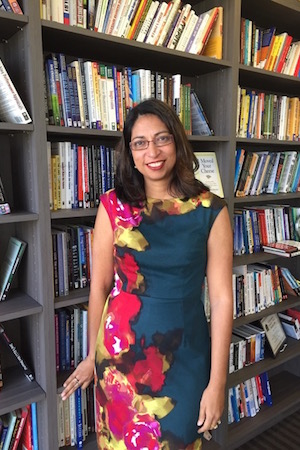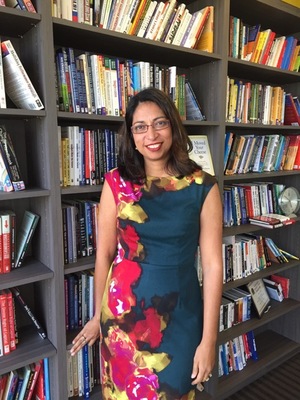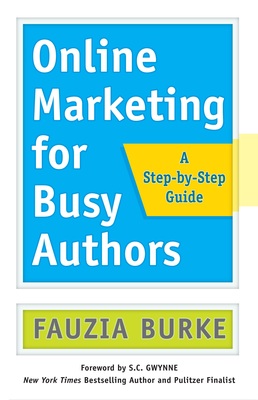When we wrote our book, The Essential Guide To Getting Your Book Published, the first person we asked to interview on the subject of online marketing was Fauzia Burke. Fauzia founded the pioneering online marketing firm FSB Associates and has been figuring out how to promote books on the World Wide Web since before most publishers and authors had ever performed a Google search. She’s worked with everyone from Alan Alda to Sue Grafton, promoting books across categories and genres. Her new book, Online Marketing for Busy Authors, is just the primer every writer needs to understand and make the most of online marketing today.
Read the interview on the Huffington Post.
The Book Doctors: How do you figure out who your audiences are? And how far should you reach when determining multiple audiences?
Fauzia Burke: Understanding your readers is crucial because it will help you devise the best online strategy for you. Online marketing is customized and personalized. It is essential for you to know your audience so you can serve them best. You should know their age group, gender, interests, which social media outlets they use and where they hang out online. The more you know about them, the better your marketing will be. In my book, I have a worksheet to help authors refine their audience so they can market for their readers.
Some questions include:
- Is your reader male or female?
- What is their age range?
- What TV shows might they watch?
- What are some common values or traits of your ideal readership?
- Does your audience have a problem, concern or frustration that your book seeks to solve?
The identification of your ideal readers will play a major role in the quality of your online marketing plan.
TBD: How do you figure out where your audience lives online once you determine who they are?
FB: There are many sites that give you social demographics of each social media site. I use Pew Research and Sprouts Social. For example if your audience is women, you are more likely to find them on Pinterest. Younger users tend to use Instagram. Another good place to start is to look at who is already following your social media sites or visiting your website and aiming for networks that draws a similar audience. You can use Facebook Insights, Google Analytics, Twitter Analytics, etc.
TBD: Is an author website an important part of a publicity/online marketing plan?
FB: Websites are a crucial link between you and your readers. It is the one place, the hub, of all your activities. Your website is your opportunity to connect with your readers in a personal way. It is also where you have full control (unlike other social media sites) over your brand. Not having a website could be viewed as unprofessional, out-of-date, and not connected.
Despite popular belief, your website doesn’t have to be expensive or complicated. You can keep it simple. WordPress is often recommended as a platform because it’s author friendly, easy-to-use and easy for people to find (has good search capabilities). Keep one thing in mind: It’s better not to have a website than to have an unprofessional one. If you have a website, make it good one.
TBD: Do authors have to blog?
FB: I consider blogs (like websites) the foundation of a digital strategy. Not only do blogs give authors the opportunity to stay connected with their readers, they also position the author as an expert. Blogs are also the absolute best way to drive traffic to websites. For book authors in a competitive marketplace, the need to blog couldn’t be higher. Consider the time you spend blogging as an extension of your job as a writer.
Blogging is a great way to share your knowledge, test how your content resonates, and collaborate with others. While experts may disagree on how often you need to blog, consistency is the key.
TBD: Do authors have to be on social media?
FB: I think every author has to make that decision for themselves. No one should be on social media if they don’t want to be or are only doing it to sell books. Social media gives authors an unprecedented opportunity to build a brand and create a community of readers. Here are some dos and don’ts that might help:
- You don’t have to do everything
- You don’t have to do the next shiny thing
- Look at the data for feedback (your digital footprint) and adjust accordingly
- Know your audience
- Don’t forget it’s a privilege to talk to people
- Be authentic
- Go for engagement
TBD: How important are author profiles on sites like Amazon, Goodreads and LinkedIn?
FB: I think they are all important to some degree. We should all have a completed profile on each site. Every author should grab their Amazon author profile. I think Goodreads is more important for fiction writers and LinkedIn is more important for non-fiction writers.
TBD: How should an author go about setting up a blog tour?
FB: If you are doing your own publicity efforts, consider developing an ongoing dialogue and relationship with the bloggers that cover your genre and niche. Share their information and be generous. Everyone appreciates a digital nod these days. Help them before you need their help.
Once you have searched the blogs that are appropriate for your book, you can pitch them a book for review or offer to do a Q&A or to write a blog that is appropriate for their audience. If you get some responses and the editors/bloggers request the book, your pitch is working. If not, you’ll have to try another pitch. Try connecting your book to something in the news or a new study. When you do get a response, pounce on it. Attention is fleeting and you don’t want to wait. If the editor/blogger asks for a book or an interview, accommodate them right away.
Then in a couple of weeks, follow up and make sure they got the book and ask if there is anything you can do to help. That’s the cycle. It’s not difficult. It’s not rocket science. However, it requires lots of time and patience. Contacts with the media are worth so much because a publicist’s relationship with an editor will cut the time and boosts your chances of getting a feature. If you are willing to put in the time, you can build the same contacts and relationships within your niche.
TBD: If an author has zero experience with publicity and marketing, what is the number one piece of advice you’d give him/her to get him/her going on the right path?
FB: I wrote my book, Online Marketing for Busy Authors, for just those authors. I hope that by giving them clear advice and priorities I have made things a bit easier on them. Here’s some advice:
Take heart and approach marketing with curiosity. If you are a overwhelmed by the rapidly changing world of online marketing, you are not alone. Remember all of us, experts and novices, are learning as we go. You don’t have to become a social media strategist to be effective.
Fauzia Burke is the founder and president of FSB Associates, an online publicity and marketing firm specializing in creating awareness for books and authors. She’s the author of Online Marketing for Busy Authors (Berrett-Koehler Publishers, April 2016). Fauzia has promoted the books of authors such as Alan Alda, Arianna Huffington, Deepak Chopra, Melissa Francis, S. C. Gwynne, Mika Brzezinski, Charles Spencer and many more. A nationally recognized speaker and online branding expert, Fauzia writes regularly for the Huffington Post. For online marketing, book publishing and social media advice, follow Fauzia on Twitter (@FauziaBurke) and Facebook (Fauzia S. Burke). For more information on the book, please visit: www.FauziaBurke.com.



